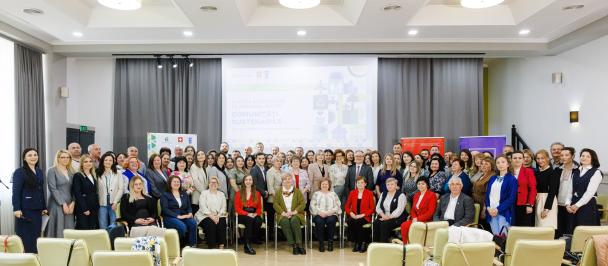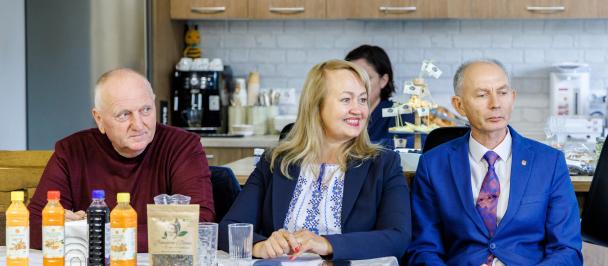The final results of the in-depth sociological study on the profile of Moldovan migrants six destination countries were discussed during the Diaspora Days event organized on 22 August 2020. The research was conducted by the International Organization for Migration in partnership with the United Nations Development Programme and the Ministry of Health, Labor and Social Protection, with the support of Switzerland.
During his opening remarks, Lars Johan Lönnback, Head of the IOM Mission to the Republic of Moldova, appreciated the updating the health protocols at borders, and the amendments to the legal framework which regulates migrant recruitment agencies, as well as during the process of developing the new strategy for migration and asylum. Also, Lars Lönnback praised the diaspora of the Republic of Moldova for its involvement in the process of sharing data on Moldovan migrants’ working and living conditions, including in the context of COVID-19 pandemics.
"We support the Governments efforts of ensuring the protection of the Moldovan citizens working abroad and assisting them upon return to Moldova, but most also to forge closer and stronger contacts with the diaspora, to make the most of its financial and human potential for the development of their home-communities,” said Dima Al-Khatib, UNDP Representative for the Republic of Moldova.
Conducted during December-May 2019 to a sample of 1,344 Moldovan migrants in six destination countries (Poland, Germany, United Kingdom, France, Israel and Spain), including to potential and returning Moldovan migrants. The results were complemented by a study with a sample of 1,186 respondents within an on-line survey with migrant workers and diaspora representatives from 10 countries of destination conducted between April and May 2020 by OIM.
The study highlights that:
- The Republic of Moldova should provide quality educational and health services to motivate its citizens to stay in their country, including family members who have relatives who went abroad for work purposes.
- Potential migrant respondents, but also some of those returned to the Republic of Moldova, including those who returned due to COVID-19 impact, indicated they would emigrate again.
- It is necessary to ensure the transparency of the fees related to job intermediation and placement, and it is important to sensitize and increase accountability of the recruitment agencies in the Republic of Moldova for the recruitment process of the Moldovan labour migrants.
- A mechanism for regulating and monitoring private agencies that mediate the employment of workers recruited on the territory of the Republic of Moldova, including when they are citizens of other states as well, should be identified.
- It is necessary to conclude bilateral agreements on labour migration and social security with destination countries where there are large numbers of Moldovan labour migrants.
- It is necessary to improve the communication and cooperation of the diplomatic missions of the Republic of Moldova with the Moldovan citizens, including in crisis situations.
- People who returned in the context of COVID-19 represent an opportunity for Moldova; many returns with skills and/or are willing to invest. National employment programs, registration procedures and other services need to be more accessible.
- Investment programs/support for SMEs should become accessible to returnees.
- The implementation of social/professional reintegration programs and opening of businesses in Moldova by returning migrants are essential for valuing their skills and their successful reintegration home.
To complement the above-mentioned study, including that on the impact of the pandemic, IOM is currently conducting a new field research in Moldova on the impact of COVID-19 on returned migrants and remittances dependent households.
UNDP, on behalf of the UN country team, performs the analysis of the socio-economic impacts of the pandemic, including for people whose incomes depend on remittances.
IOM and UNDP, with support of Switzerland, will continue to support the process of reintegration of Moldovan migrant workers in Moldova by supporting skills recognition programs, employment reintegration and capitalizing on their opportunities to invest and contribute to local community and economic development.

 Locations
Locations



